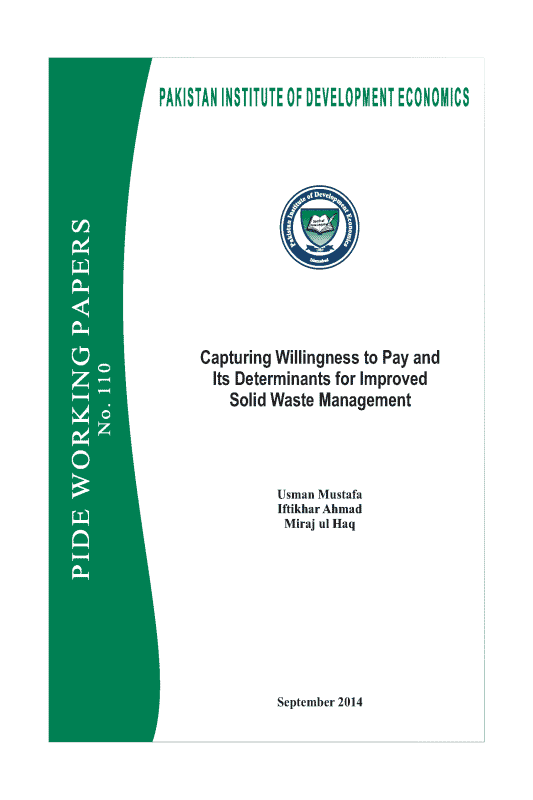Capturing Willingness to Pay and Its Determinants for Improved Solid Waste Management
A dignified and healthy life remains a distant nightmare to the large majority of population in developing countries including Pakistan. Large masses living in this world particularly South Asian country (that is home to over one fifth of the world’s population) is still striving for it. Pakistan, being a developing country, is no exclusion to that state. The condition of sanitation and solid waste management (SWM) in the country carriages a grave challenge to health and hygiene. This study was carried out to show at the household’s HH’s) demand for improved environmental settings over valuing their willingness to pay (WTP) for better SWM facilities. The study follows contingent valuation method for assessing the HHs preferences for better living standards. Primary data used in the research was gathered with the application of tailor made questionnaire from both rural and urban regions of district Abbottabad, Pakistan at HHs premises. The objective was to discover the determinants of HH’s WTP for improved environment through better SWM services; the binomial logit regression method was used. Education, income, awareness, location and HH si]e were found to be influencing HH’s WTP. The study concluded that HHs were WTP, if adequate services were delivered to them.




